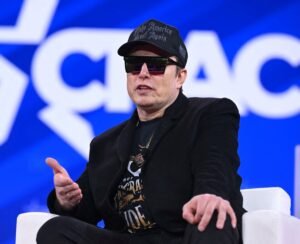Exploring the Tensions Between Elon Musk and Sam Altman in the AI Arena

The Tension Between Elon Musk and Sam Altman
Overview of the Rivalry
Elon Musk has consistently demonstrated an ability to disrupt entire industries, from automobiles with Tesla to space exploration with SpaceX. However, there appears to be one person who has managed to outpace Musk in the rapidly evolving field of artificial intelligence: Sam Altman, the cofounder and CEO of OpenAI. This rivalry has sparked significant conversation in Silicon Valley, as observers ponder why someone like Musk, the world’s wealthiest individual, lagged behind Altman in the AI race.
Rising Questions in Silicon Valley
Musk’s previous victories over well-established industries have left many perplexed about his struggle in the AI realm. Recently, a Wall Street investor expressed confusion about how Musk could lose ground to Altman. This sentiment reflects a broader curiosity in the technology community, especially given the urgent significance of AI technology in today’s world.
Legal Disputes and Old Grudges
The battle between these two high-profile figures is likely to escalate into legal avenues. Musk and OpenAI have put forth a proposal to have a trial concerning disputes over OpenAI’s transition from a nonprofit model to a for-profit entity. In what could be termed an ironic twist, it seems both Musk and Altman have found commonality in agreeing on the need for legal resolution.
Despite this development, their relationship is far from friendly. Musk has publicly criticized Altman, labeling him as “not trustworthy” and expressing concerns about the potential dangers of AI controlled by leaders he deems unreliable. Altman has shot back, suggesting Musk should focus on creating better products rather than resorting to personal attacks.
The Origins of Their Conflict
The tension between Musk and Altman began with the founding of OpenAI in December 2015. Established alongside other leading innovators in Silicon Valley, the organization aimed to ensure that artificial intelligence would be beneficial to humanity. Musk’s apprehensions about AI threatening human existence, particularly following a debate with Larry Page, prompted his involvement in shaping a safer AI landscape. Initial collaborations between Musk and Altman focused on the ethical implications of AI, as both shared concerns about its potential risks.
The Shift in Dynamics
Despite their early partnership and shared ideals, internal differences began to surface over the direction of OpenAI. Funding proved to be a significant concern, as developing advanced AI technology is incredibly costly. Musk’s fear of OpenAI lagging behind Google’s DeepMind led him to propose taking more control over the organization, a move that was met with resistance from Altman and other co-founders.
This disagreement escalated into a heated argument between Altman and Musk, reportedly involving shouting in the OpenAI office, which ultimately ended with Musk storming out. Musk’s official resignation from OpenAI was attributed to a conflict of interest with Tesla, but many insiders believe that personal dynamics and differing visions for the future played key roles in the fallout.
The Dangers of AI and Motivation
Musk’s motivations for his initial involvement with OpenAI were rooted in a genuine concern for humanity’s future. When interviewed by Vanity Fair, Altman reflected on Musk’s desire to prioritize ethical considerations over profit, demonstrating how initial aspirations can turn into complex business entanglements. Altman indicated that Musk’s challenges in moving forward were indicative of a deeper insecurity, suggesting a stark contrast between the two leaders’ approaches to competition and success.
Summary
As the technological landscape continues to evolve, the rivalry between Elon Musk and Sam Altman serves as a case study in ambition, differing visions, and the ethical implications surrounding the pursuit of artificial intelligence. While both remain key players in the field, their distinct paths and philosophies reveal the complexities of navigating innovation in a universe where technology holds unprecedented power and potential consequences.






